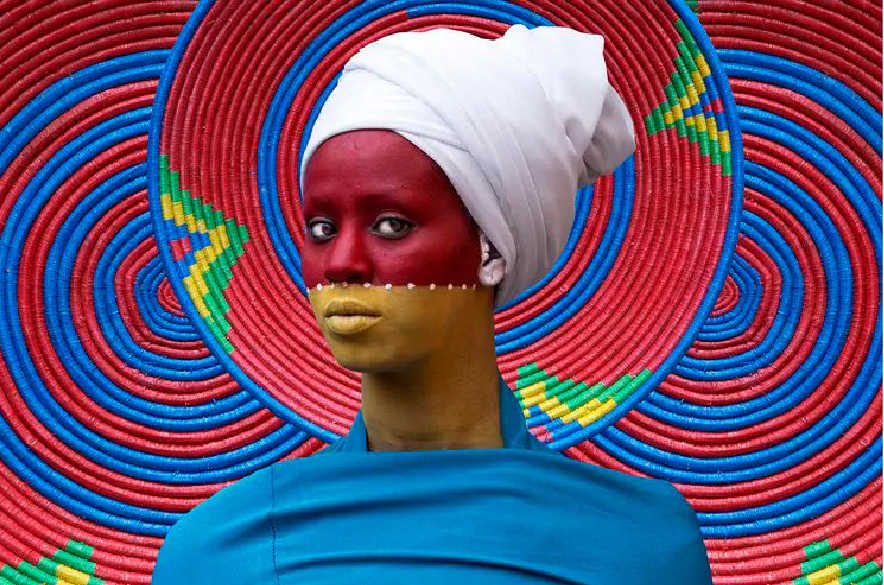What the Social Enterprise World Forum in Ethiopia Was Like

Learning About Ethiopian History
It was fascinating to learn about the history of Ethiopia while I was there. Before the conference started I was able to do a couple of day tours with social enterprise tour company Shebaland Tours. So many interesting insights including:
- Ethiopia is on a 13 month calendar - so in fact, it’s currently 2012 in Ethiopia
- Coffee was first discovered in the highlands of Ethiopia by a goat farmer (the goat ate some beans; farmer noticed goat was behaving strangely; farmer ate some… and boom! Coffee was born!)
- Ethiopia had a communist government from 1987 to 1991 - by all accounts it was pretty bleak
- Humans originated in Ethiopia and I was able to see the remains of the world's most famous early human ancestor, the 3.2-million-year-old ape "Lucy”
- And oh so much more (think about a trip to Ethiopia to discover it all for yourself why not?)

Blue Nile Gorge + the original goat and goat farmer jumping for joy at their discovery!
Experiencing Ethiopian Culture
Food, drink, music, dance, coffee - it was such a treat to experience the richness of Ethiopian culture in the week I was in Addis Ababa
Some highlights included:
- Eating curries with Injera - a flatbread with a slightly spongy texture, made out of teff flour
- Sampling Tej - a fermented honey wine (with a high alcohol content!!!)
- Learning the practice of ‘gursha’ (an Amharic word that means “mouthful”) - the act of feeding someone else a mouthful of food in a gesture of love and friendship (this is how I ended up eating the delicacy of raw meat dipped in spicy chilli at an Ethiopian family’s house!)
 Delicious curries with Injera, and a coffee roasting ceremony
Delicious curries with Injera, and a coffee roasting ceremony
Learning About Social Enterprises from Around the World
There are SO MANY inspiring people out there working hard to create businesses that are making an impact. Here are just a few examples of what truly is a global movement:
Social enterprise textile and fashion labels from Ethiopia including Wawi Fashion, Sabegn and Paradise Fashion
Stay Native - a New Zealand Indigenous airbnb style platform
Noble Cup - a menstrual cup business on a mission to destigmatise menstruation with the tagline ‘Every Queen Bleeds’
Moringa Connect a business connecting over 2,500 small farmers to the global market for the highest quality moringa-powered natural products - like tea!
It was fascinating to learn about the history of Ethiopia while I was there. Before the conference started I was able to do a couple of day tours with social enterprise tour company Shebaland Tours. So many interesting insights including: Kim Lim for PichaEats shared how they created a food business to create opportunities for refugees in Malaysia (“We use food to tell stories”). She started with no background in entrepreneurship or hospitality, but with a strong desire to see lives changed for the better. “When you have a purpose and a vision and know what needs to be done, you can keep going” Pam Armstrong from Stay Native shared how their business emerged from a desire to create tourist experiences that foster real authenticity and meaningful interactions. They asked themselves, “How do we build a bridge so a healthy cultural exchange can happen?” She shared a powerful Maori proverb to express how people’s wellbeing must be paramount in the development of businesses. He aha te mea nui o te aoWhat is the most important thing in the world?He tangata, he tangata, he tangataIt is the people, it is the people, it is the people. Mike Curtin from DC Central Kitchen, a business that develops and operates social ventures that break the cycle of hunger and poverty in Washington DC, has had a long history in building and scaling social impact businesses. He spoke of the need to maintain a “productive impatientness” and an appetite for “relentless incrementalism”. He said “If we commit to working hard and commit to working together, we can show what can be done - we are practicing advocates”. I also loved hearing from Emma Kate of Brisbane’s Food Connect. She stated the plain truth that everyone interfaces with the food industry (we all need to eat!) and the question we should all be asking - how can we use food businesses to create a more just and equitable economic system?


 Laura Egan's passion is creating opportunities for people to achieve their aspirations through business. In October 2010, she established
Laura Egan's passion is creating opportunities for people to achieve their aspirations through business. In October 2010, she established
No Comments